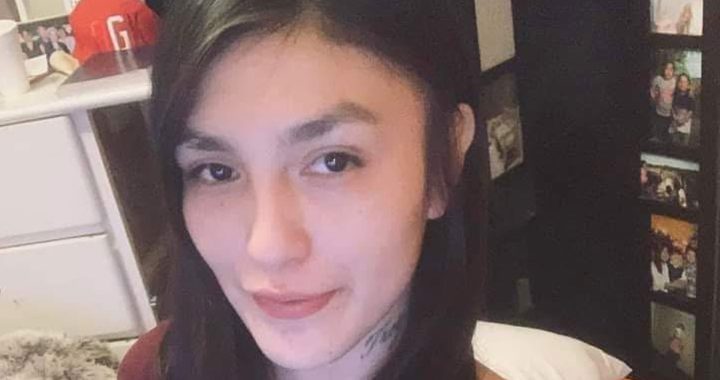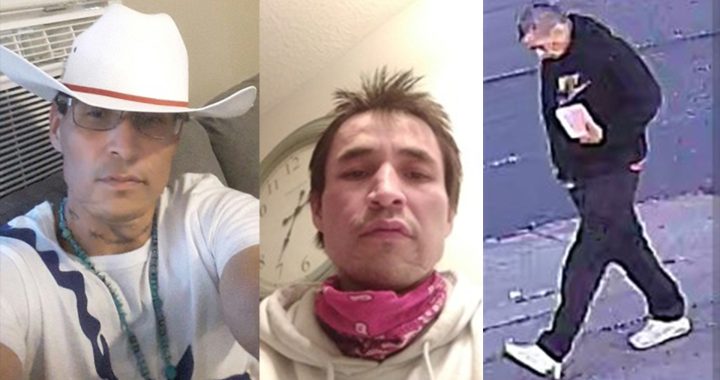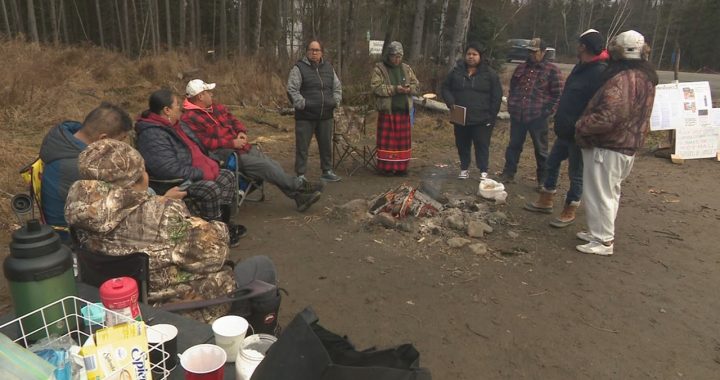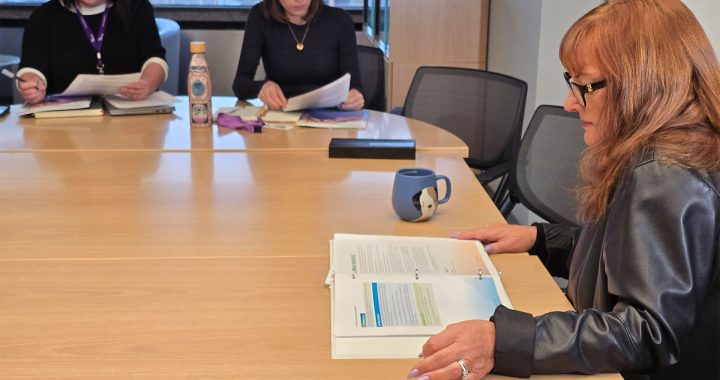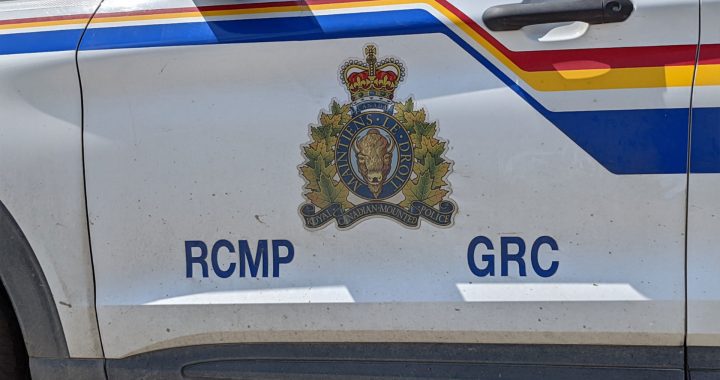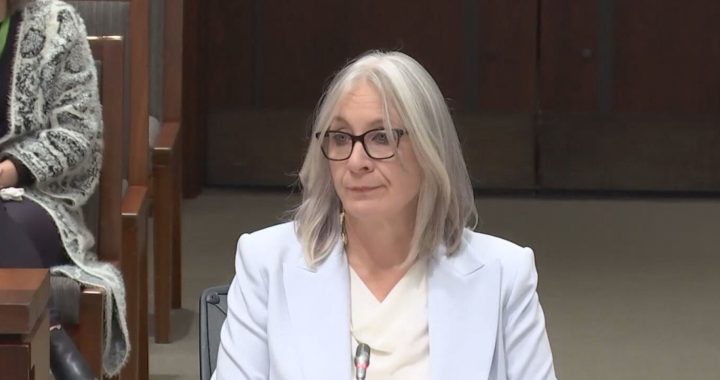Despite a plan to lift some restrictions in Alberta, medical officials in the Blood Tribe say they’re keeping all COVID-19 pandemic health measures in place for the time being.
“Upon review of the new provincial measures, the Blood Tribe Emergency Management Team (BTEMT) determined that all current COVID-19 enhanced safety measures will remain in effect on the Blood Reserve until further notice,” said a statement from the BTEMT sent Wednesday afternoon.
“The health and well-being of our Blood Tribe members is of the utmost importance; therefore, we will continue to review the Blood Tribe’s enhanced safety measures on an ongoing basis under the guidance of our health professionals.”
On Tuesday, Alberta Premier Jason Kenney announced the vaccine passport is no longer necessary.
“The program is no longer serving a useful and compelling purpose,” he said.
It’s the first phase of a three-step plan to ease public health measures in the province that started at midnight on Tuesday.
According to the province, capacity limits in large facilities and entertainment venues (500+) remain in place, but food and beverages now allowed in seats, capacity limits for locations not covered under the REP program are removed, mandatory masking requirements removed for children 12 and under in all settings as of Feb. 14, children and youth in schools for any age as of February 14.
“It has always been the government’s approach to keep public health measures in place only so long as they are absolutely necessary to protect public health and the health care system,” said Kenney.
Kenney said Alberta passed the peak of Omicron infections weeks ago and COVID-19 related hospital admissions are in decline according to the province.
Alberta currently has 28,265 active cases – the second-highest in the country after Quebec. To date, 3,686 people have died.
Dr. James Makokis, a Cree physician who largely works out of Edmonton, says lifting restrictions isn’t a good idea.
“I’m really worried for our people who have low double (and triple) vax rates,” he said. “As well as low pediatric rates.”
The timing of Kenney’s announcement coincides with an ongoing truck blockade that is into its 12th day in Coutts, Alta., at the U.S. border.
Truckers there have been demanding Kenney lift all health-related restrictions or else they would stay in place.
Asked if this had anything to do with lifting the restrictions, Kenney said, “None of that has anything to do with a few trucks at the Coutts border crossing. All of it has to do with the fact that the disease is changing.”
Step two of phasing out public health measures will begin in March and will include the lifting of mask requirements and limits of social gatherings.
Omicron hasn’t peaked in northern Saskatchewan
In Saskatchewan, the lifting of proof of vaccination requirements announced by Premier Scott Moe isn’t going over well with several tribal councils including the Federation of Sovereign Indigenous Nations.
It’s urging all members to continue with COVID-19 protocols in spite of Moe’s decision.
The Northern Inter-Tribal Health Authority that gives health advice to the chiefs of 33 First Nations in northern Saskatchewan says the timeline for lifting restrictions doesn’t align with the reality on the ground.
“We in public health, as well as chief and council and other leaders are concerned, particularly for two main reasons. Number 1 is that our COVID-19 vaccination coverage rate is not yet optimal and we’re lagging behind provincial coverage,” says Dr. Nnamdi Ndubuka from the NITHA. “Secondly, we do have a lag, first wave, second wave, third wave and fourth wave. the north oftentimes lags behind by about 2 to 3 weeks, so it’s our understanding that the Omicron wave is yet to peak in the north.”
According to Indigenous Services Canada, 15,386 people living on reserve have contract the virus.
According to the NITHA, only 60 per cent of those eligible for the vaccine are fully vaccinated. Only 16 per cent have their boosters.
Some communities have been hit hard in the pandemic. Ndubuka said this is putting a lot of pressure on front line workers.
“Truly, we do support that First Nation communities to continue to implement measures that they deem appropriate to maintain safety within communities,” said Ndubuka. “But obviously, announcements like this really puts lots of pressure on us in terms of appropriately providing guidance in a way that communities will remain safe.”
Moe says the plan is to lift all restrictions in Saskatchewan by the end of February.
‘Not in the clear yet’: Most provinces stick with gradual COVID 19 reopening plans.
Other provinces indicated Wednesday they would not rush to follow the lead of Alberta and Saskatchewan by quickly dropping COVID-19 vaccination passports and indoor mask requirements.
“Just because one province is doing something doesn’t mean we’re necessarily going to do that,” said Dr. Jazz Atwal, Manitoba’s deputy chief public health officer.
Manitoba is hoping to lift all restrictions by spring, but Atwal said the plan will be dictated by science, not the decisions of other jurisdictions or demands from protesters.
Easing public health orders in Ontario will also be done with caution and only when it’s safe to do so, said Health Minister Christine Elliott. She added that proof of vaccination and masks will be required for some time.
“We are not in the clear yet,” Elliott said.
Ontario is tracking on a best-case projection, she said, after gradually lifting some restrictions on businesses and social gatherings late last month. The number of COVID-19 patients in hospitals Wednesday was down 195 from Tuesday to 2,059.
Dr. Theresa Tam, Canada’s chief public health officer, has said hospitals across the country remain heavily strained. “We’re not out of the woods,” Tam said on social media Tuesday.
Health officials across the country, saying it’s time to learn to live with COVID-19, have been announcing gradual reopening strategies.
“You’re tired. We are too. Everyone is tired of COVID,” Nova Scotia Premier Tim Houston said Wednesday. “But COVID has proven to be a formidable opponent.”
Houston announced some restrictions around gathering sizes, capacity limits and sports events are to be loosened next week. He said that’s possible because less than 10 per cent of eligible Nova Scotians are unvaccinated and the province is leading the country in booster shots.
He said the move isn’t because of protests in Ottawa and elsewhere against vaccine mandates and other public health orders.




